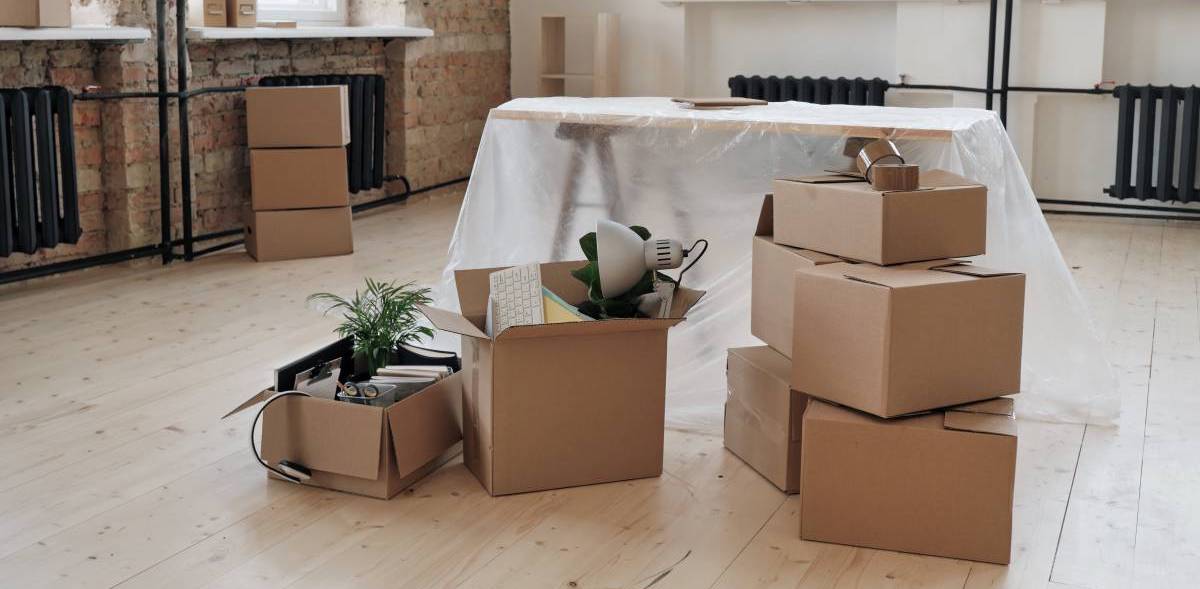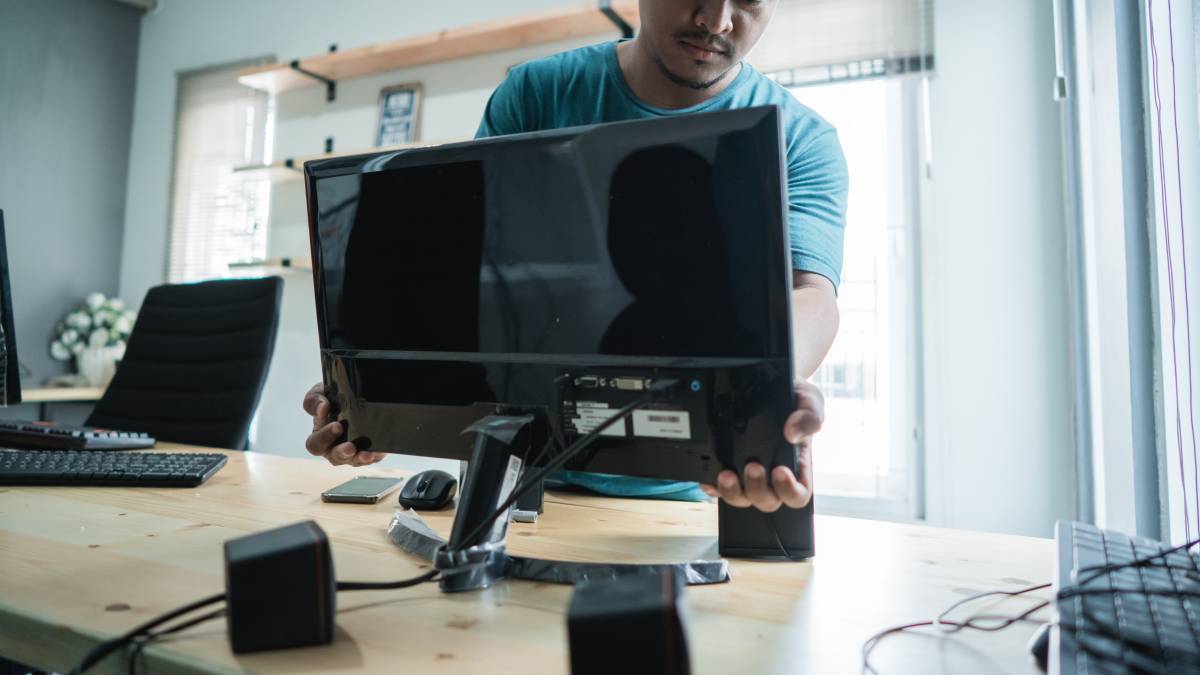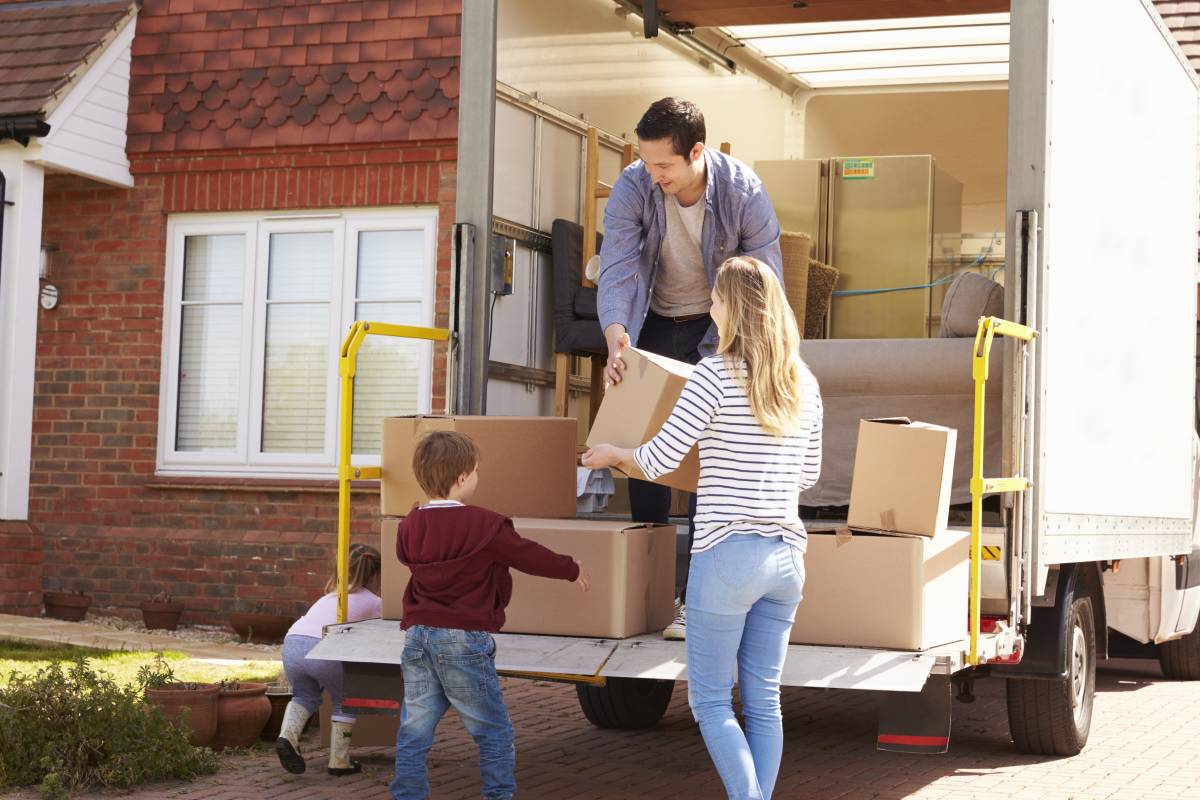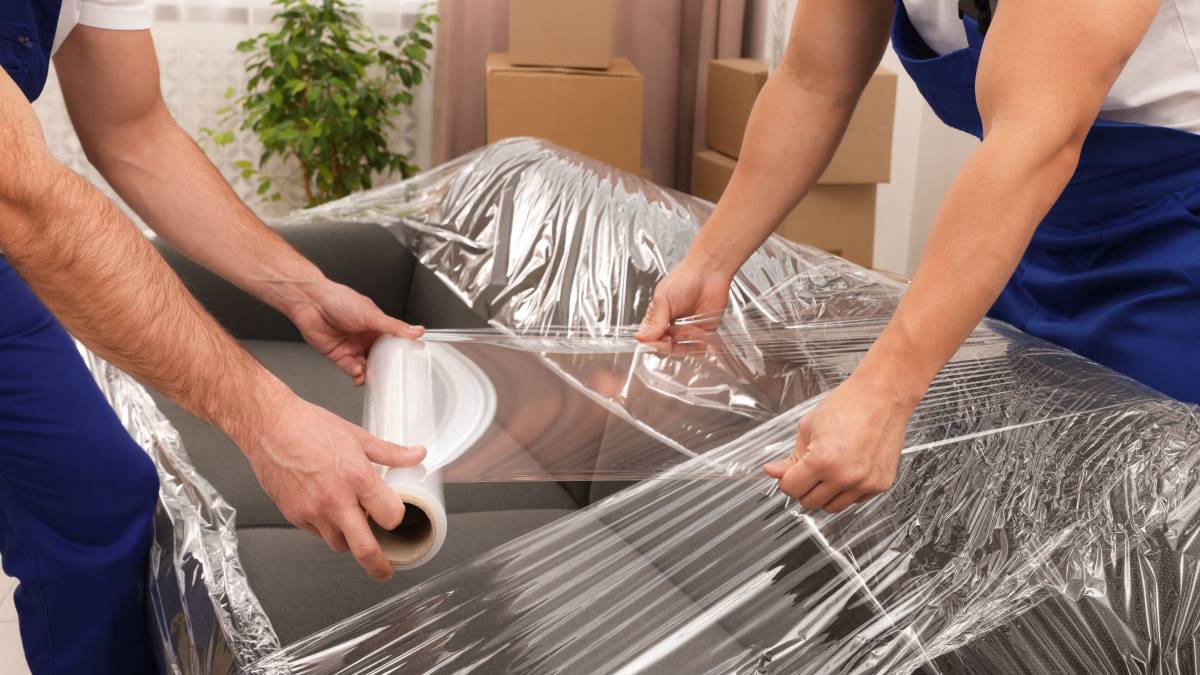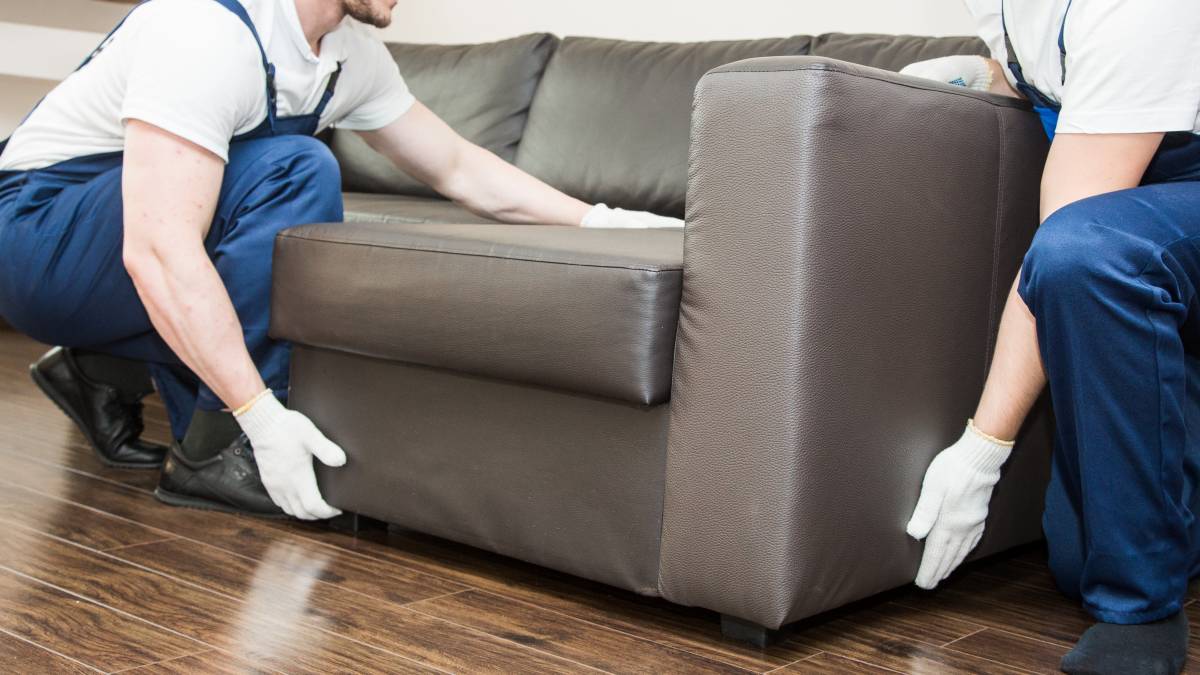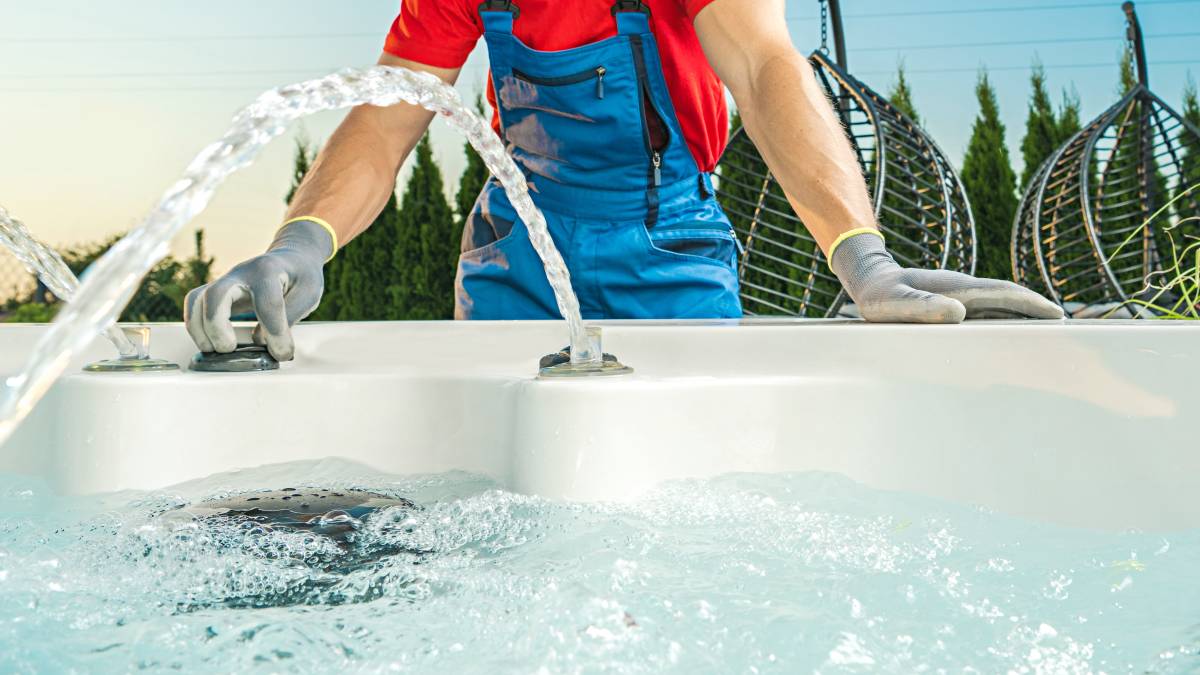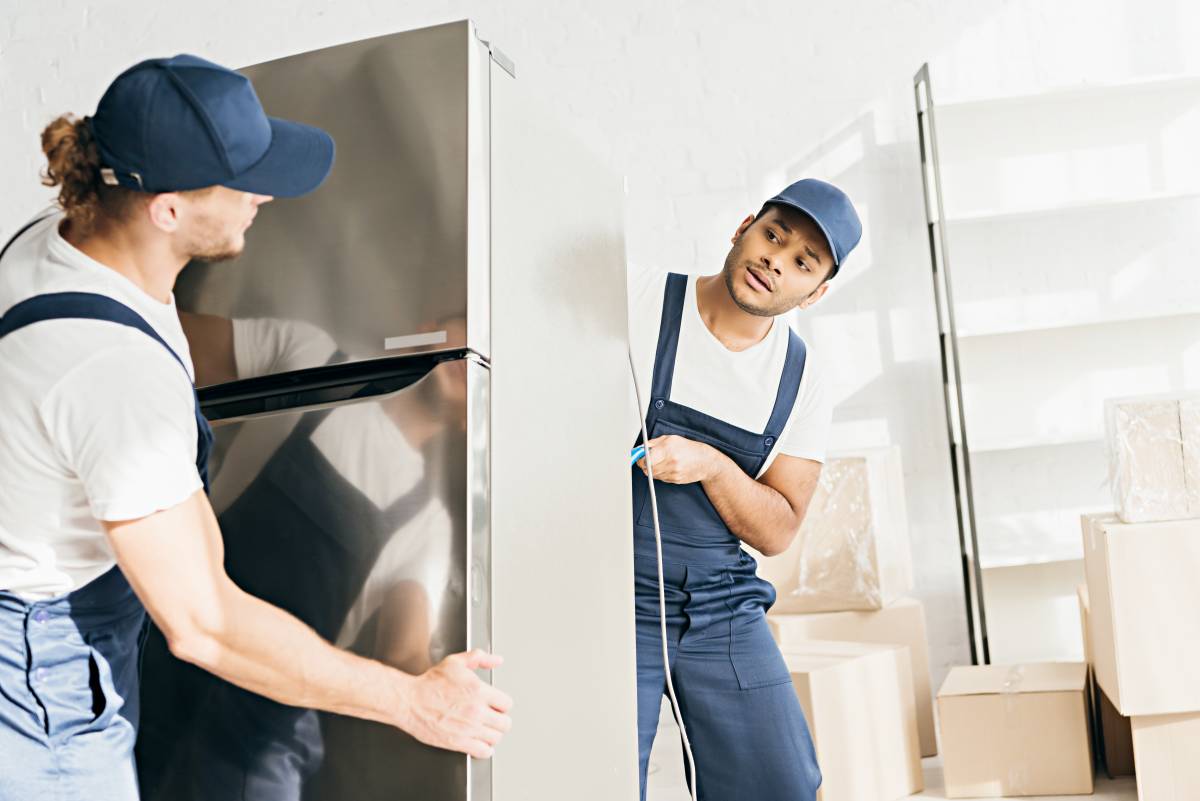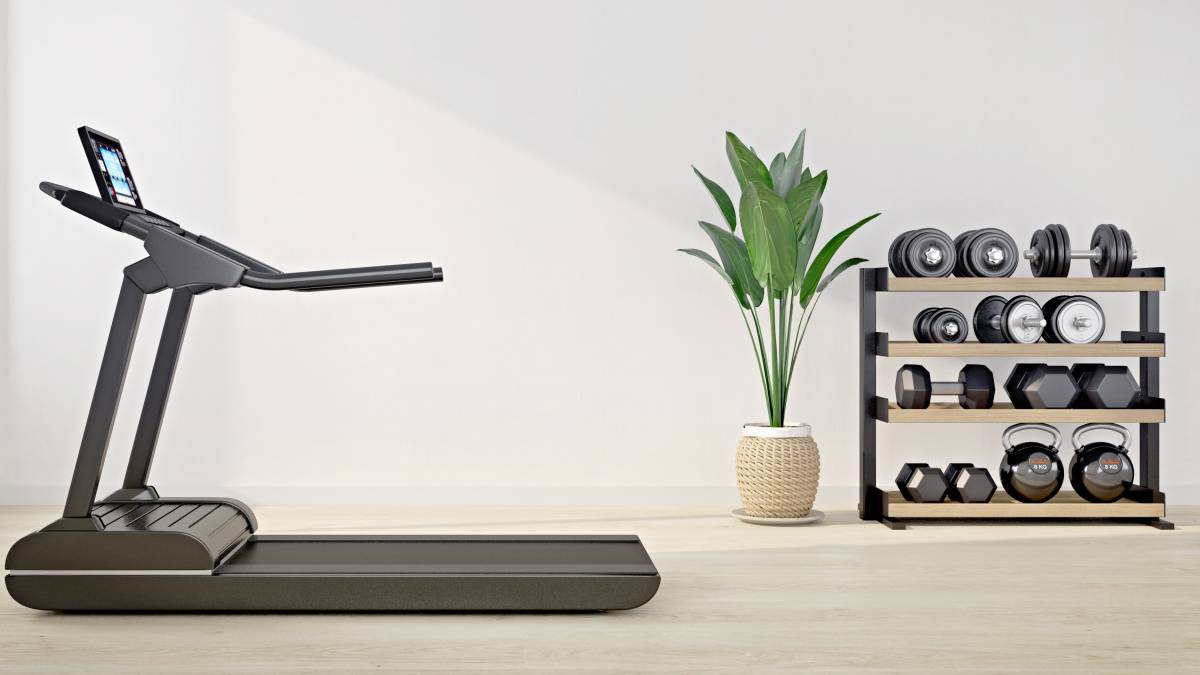- Home/
- Checklists/
- Interstate Removals/
- Moving Interstate Checklist
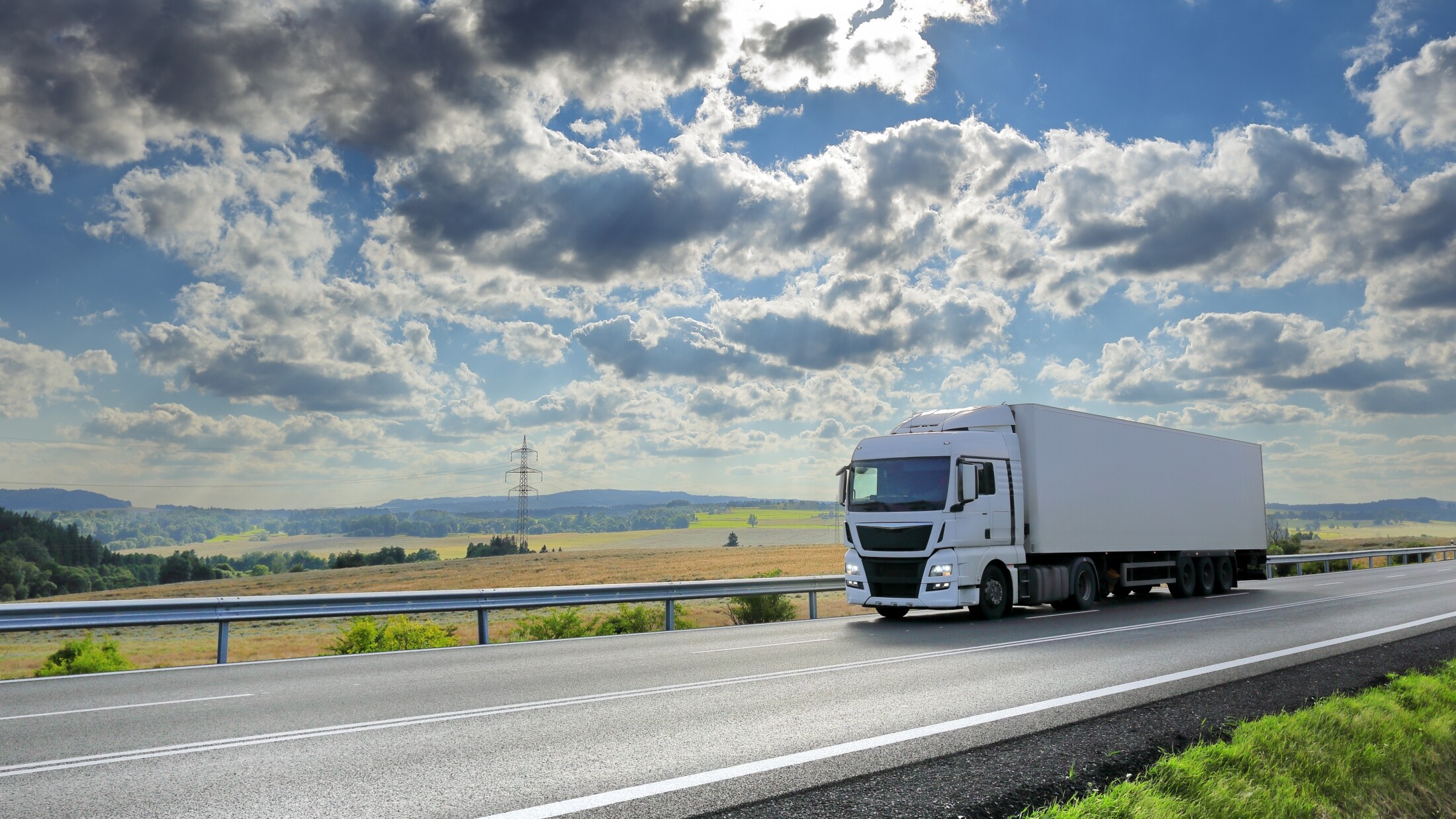
Moving interstate checklist
Uprooting your life and building a new one in another state can be daunting. Use this guide to navigate this complex but important milestone.
Get moving helpPublished on
Last updated August 23, 2023
Moving to another state calls for various tasks, ranging from simple to complex. That’s why a checklist for moving interstate like this is invaluable to help you transport your family, pets, and treasured possessions and settle in at your new location.
Use this moving interstate checklist for the next few months, weeks, and days building up to moving day to manage odds and ends of your interstate move.
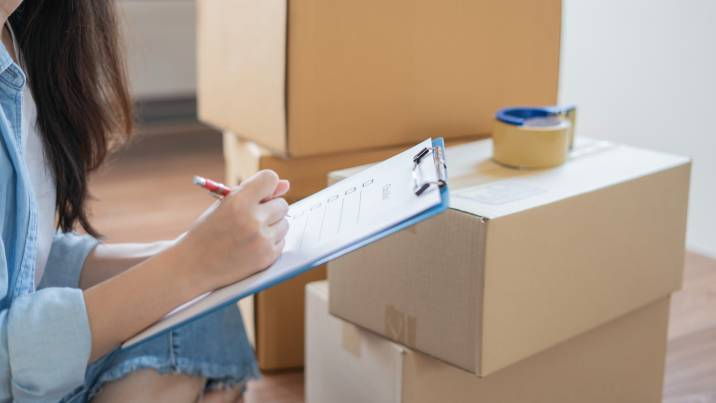
The number of items, using your own vehicle or public transportation, travel distance, pets, number of family members, and other factors can influence the complexity and length of your moving checklist. The key to doing all this is to plan and get things done as you build up to moving day.
What to do 2-3 months before the move
Giving yourself at least 2 to 3 months to move is essential. Even if you don’t have many possessions, planning to move out of state can take months of preparation and organising before moving.
Here’s what to do before you move out of state:
☐ Scope out your new neighbourhood
This is the basis for most moving tasks, as you must ensure your new neighbourhood has all you need. Before you even compile your packing list for moving out of state, make certain that the area you plan to move to is close to your new job.
Also, are schools, medical facilities, markets, and stores nearby? Consider their needs if you’re moving your whole family out of state. Find out before you move out!
☐ Make a moving playbook
Organising all your tasks is one of the first crucial steps. This can be done by creating a moving playbook, a folder or a binder where you can keep your entire to-do list handy and store important documents. Back up and update this playbook on a phone or computer app.
☐ Decide on your moving budget
Figure out the cost of moving by listing all the services you’ll need to hire or use, such as:
Public transportation (taking the bus, renting a car, boat, or plane ride)
Moving companies or rented storage trailers
Car maintenance and repair (if you plan to use your car)
Hotel or motel stays during the move
Once you’ve set your budget for the move, stick to it – but have money ready for emergencies.
☐ Get moving supplies
This is essential if you’re packing and moving items yourself. Figure out which items you can pack and move on your own, then get the right amount of boxes, bubble wrap, spools of packing tape, and label stickers. Moving interstate tip: As for larger, bulkier items, don’t hesitate to hire professionals to pack them for you.
☐ Plan your route
Get a phone app and a paper map to plan your route. Do this to determine how much fuel and supplies you’ll need if you drive. This can also help you avoid confusion or loss when driving to your new state.
☐ Get transportation ready
If you choose to drive your car for the move, hire a mechanic to inspect it and make any needed repairs. If you decide to sell your car, start finding a buyer. Taking the bus, plane, train, or ferry? Book tickets for any transportation you need in advance to avoid the seasonal rush.
☐ Inform your landlord or landlady
Don’t forget to let your landlord or landlady know you’re moving! Apart from common courtesy, giving notice now allows them ample time to refund your deposit. This is also a good time to cut off any utilities you will no longer need.
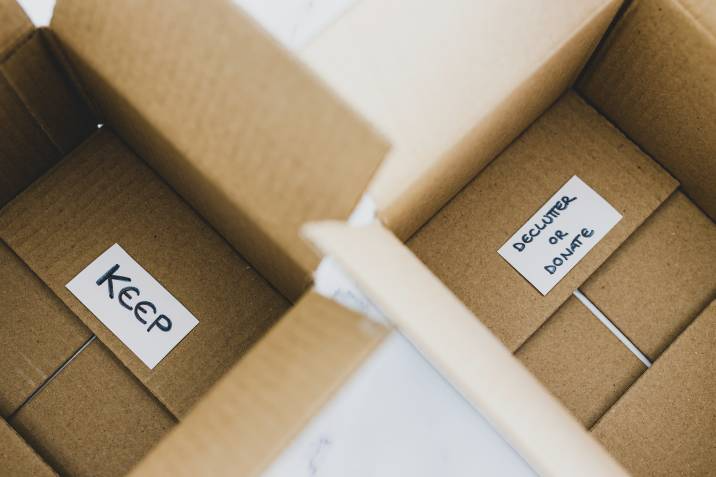
What to do a month before the move
☐ Have housing ready
As you move to another state, make sure to have temporary housing ready (such as a hotel or motel stay) if you haven’t found a place to rent or have yet to purchase a home.
☐ Dispose of clutter
Among the things to consider when moving interstate is how to pack light. Sell off items with little sentimental or monetary value – the money you get can contribute to your moving budget. For instance, you can sell off your white goods and replace them once you’ve moved. Seasonal clothing items can also be donated or sold, then replaced later.
You can hire a rubbish removal service to dispose of broken or old furniture. This way, you can avoid the hassle of transporting heavy or bulky items you no longer need.
☐ Get your paperwork together
Check that your birth certificates, passports, deeds, titles, medical records, and other important documents are all accounted for and packed for the move. Find out how and when to transfer essential items like your voter registration, car registration, and insurance.
☐ Clean out the fridge
Consume food in your fridge and pantry well before moving day. Check for any emergency supplies you can use up if you don’t plan on bringing them. Don’t buy food items in large quantities from now on to avoid wastage.
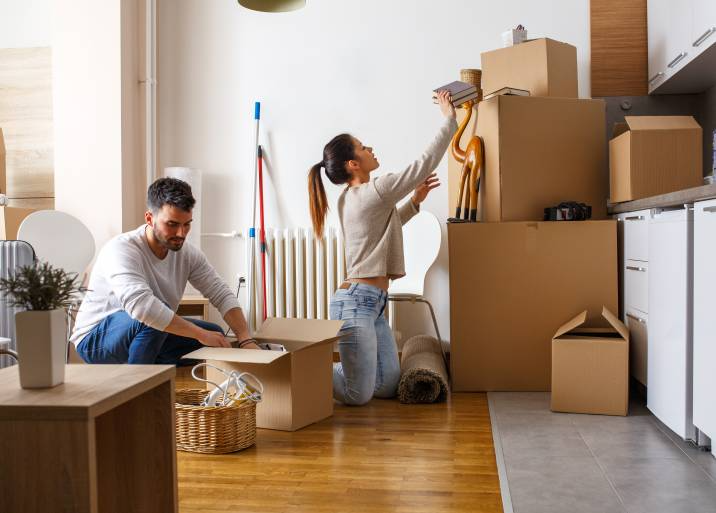
What to do 2 weeks before the move
☐ Contact your service providers
When appropriate, let your bank, credit card company, internet, and cell service providers know about your move and update them with your soon-to-be new address and contact information.
☐ Confirm your moving schedules
Check with all the moving companies or specialists and confirm your schedules. Refer to your moving playbook and go down the list of pet transporters, car shippers, and furniture movers you hired.
☐ Contact your new rubbish collection service
Get in touch with the rubbish collection service in your new location. That way, you’ll have rubbish bins at your new place by the time you move in.
☐ Start packing
This should be the time when you start packing your items. To avoid packing in a panic, plan this such that you can finish at least two days before the actual moving day.
What to do 1 week before the move
☐ Advise the post office
Do you get any physical mail or parcels? Inform your local post office so they can forward these to your new address.
☐ Tackle the dirty jobs
Part of your interstate moving checklist is leaving your rental behind spic and span. This should be easier after your possessions have been packed and sorted, so get started on general cleaning jobs. If you need help, remember that you can always hire end of lease cleaners. Use this time to drain gas and oil from any outdoor equipment you plan to take along.
☐ Prepare “settling in” supplies
Prepare items to make your new residence more livable. Pack crockery, a first aid kit, and toiletries. Don’t forget to pack snacks, easy-to-prepare meals, a cooking pot, and a spatula.
☐ Get cash ready
One of the long-distance moving tips few people mention: there may not always be ATMs along your route, so be sure to have cash on hand for emergencies.
☐ Finalise packing
At this point, you should be done packing and putting on the last labels on your moving boxes for either you or your moving company to ship. Don’t forget to get your security deposit from your landlord/landlady.
The day before moving day
☐ Prepare snacks
Bring enough snacks for everyone on the trip to ensure nobody goes hungry.
☐ Bring your valuables
Pack your most valuable possessions, like jewellery and small family heirlooms, in a small bag you can carry.
Moving Day
On the day itself, make final checks on your rented apartment or home. Check every room to ensure you haven’t forgotten to pack anything and that the place has been cleaned.
Do a final check on your car and ensure you have enough fuel for the journey. Once you’re done, bon voyage!
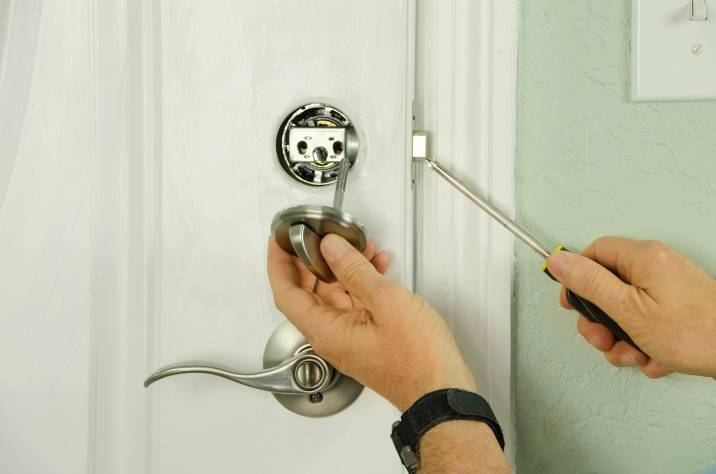
Things to do after moving to a new state
Congrats on the successful move! Now that you’ve moved into a new residence, now comes the more exciting part – getting settled in! Here are some things you can do:
☐ Hire a deep cleaning service
Even if you move to a brand-new house, it may still need a good dusting and general cleaning. You can go DIY or get move-in cleaners to do it for you.
☐ Get unpacked
Don’t just unpack every item you have willy-nilly – use a system. For instance, place boxes marked “kitchen items” in the kitchen, then unpack them two boxes simultaneously. Do the same for all the other boxes so you don’t get overwhelmed!
☐ Boost your home security
Get a new set of locks for all your entryways and a deadbolt on your front door. You can also install a home security system with an alarm, smart doorbell, and CCTV cameras.
☐ Make the home safe for your kids and pets
Install safety gates and lock cabinets and windows. Ensure household chemicals, tools, and other potentially harmful items are stored away from your kids and pets.
☐ Check the smoke detectors and HVAC systems
Inspect your home’s HVAC systems if it has one, or check that the individual heaters and A/C units work properly. Test the smoke detectors as well and place new batteries to be sure.
☐ Have your home inspected
Hire a contractor to inspect your home’s structural integrity and signs for wear and tear on the roof or ceilings. Get repairs done on them immediately to avoid more costly repairs later.
Get through your interstate move with the help of an expert
Making an interstate move is not a decision to take lightly. While moving has its share of difficulties, preparing a checklist along with diligent planning can make the task less burdensome. This is especially true when you have experienced, professional interstate removalists to assist! So why try to do it all by yourself? – hire removalists on Airtasker!
Find interstate removalists, fast
Post a task
FAQs on moving interstate
Do your research about the state you’re thinking about moving to, and weigh the pros and cons of that state. Don’t move until you’ve found a job and a new place to live in the state that you’re considering. Plan your move well before moving day, at least 3 months in advance. Plan a budget for the move and your post-move; don’t forget to make a checklist like this one!
Yes, it can be difficult, especially when you must find a new job and residence and familiarise yourself with your new state. A lot of paperwork is involved, such as transferring your vehicle registration, utilities, and insurance. You may also have to go without seeing friends or family members for some time, so consider these carefully and choose a state that’s relatively easier to move to and start anew.
This amount can vary. If you’re moving to a new state without securing new employment, save at least three months’ worth of living expenses as you do your job search – apart from the moving expense. Consider your moving expenses, rent and security deposit for a new place, utilities, food, and other costs like transporting your vehicle and pets if you have them.
Related articles
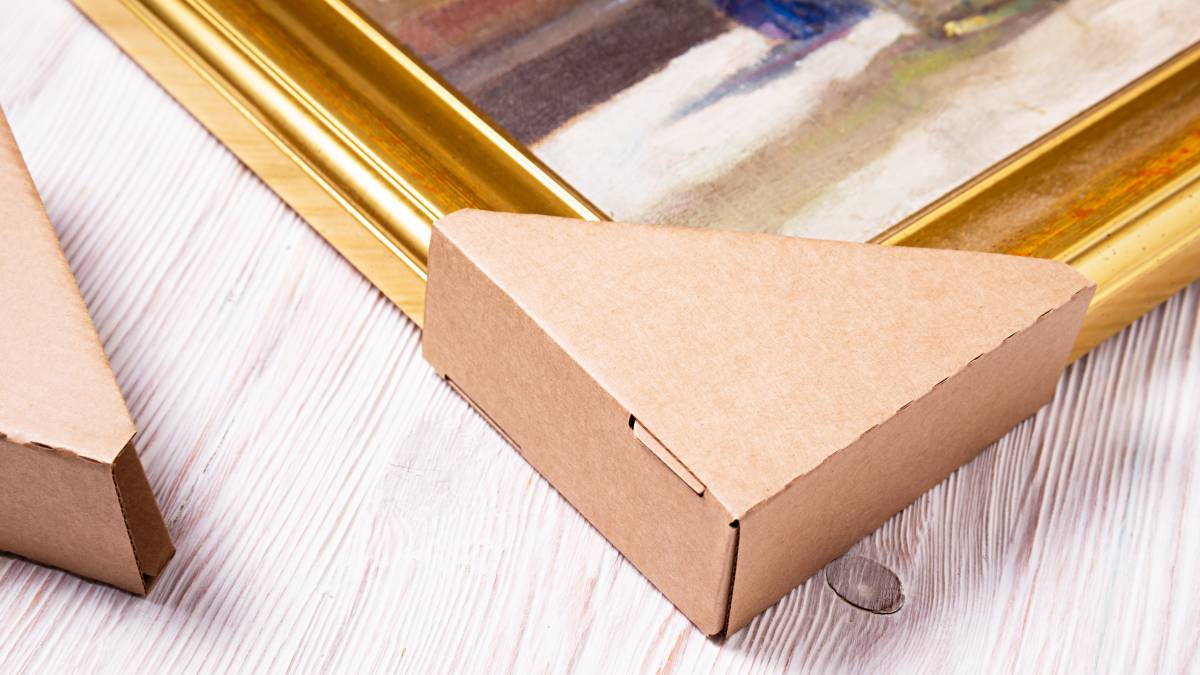
How to pack artwork for moving
Read more

Tips for moving house with kids
Read more
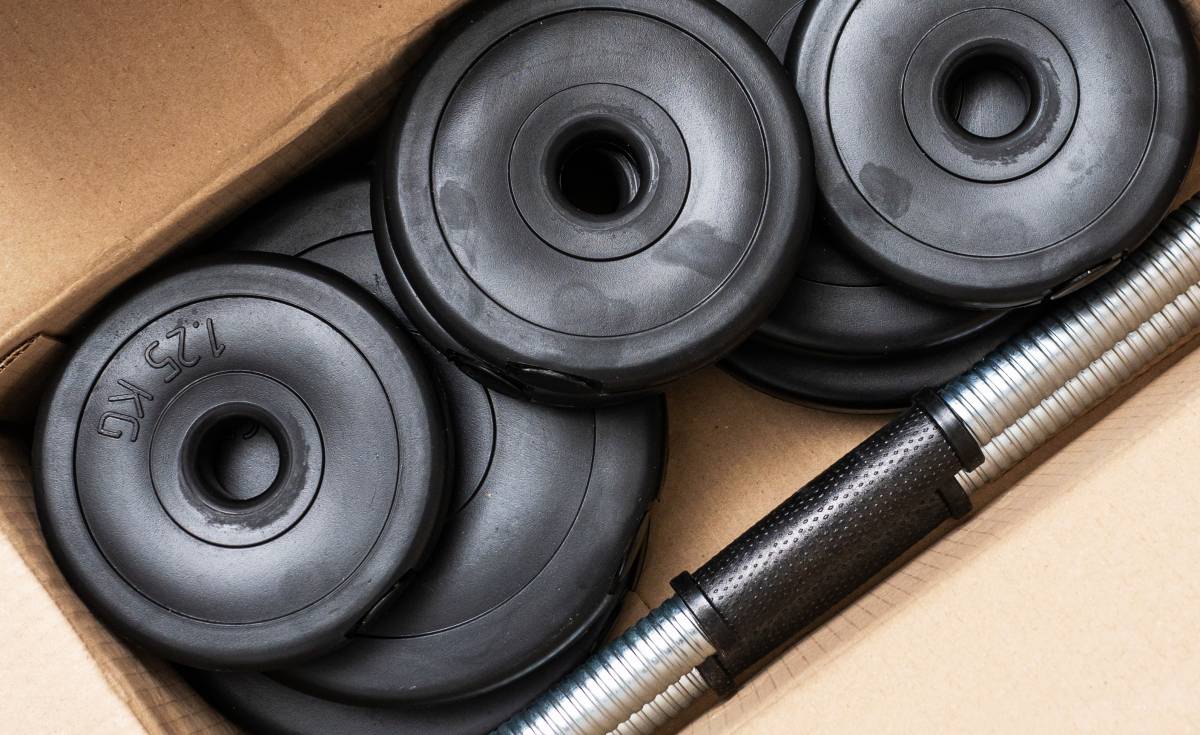
How to move gym equipment safely
Read more
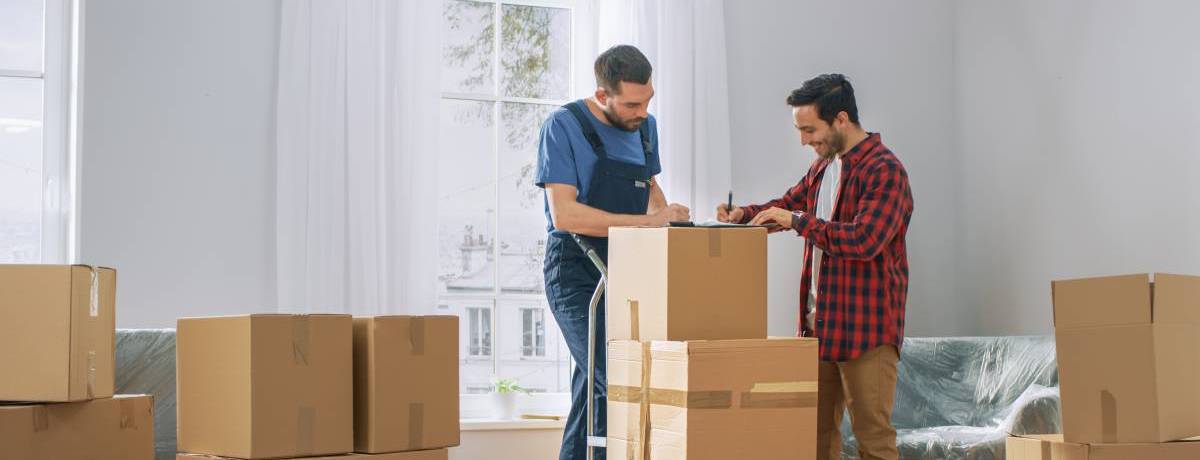
A guide to becoming a removalist
Read more
Related price guides
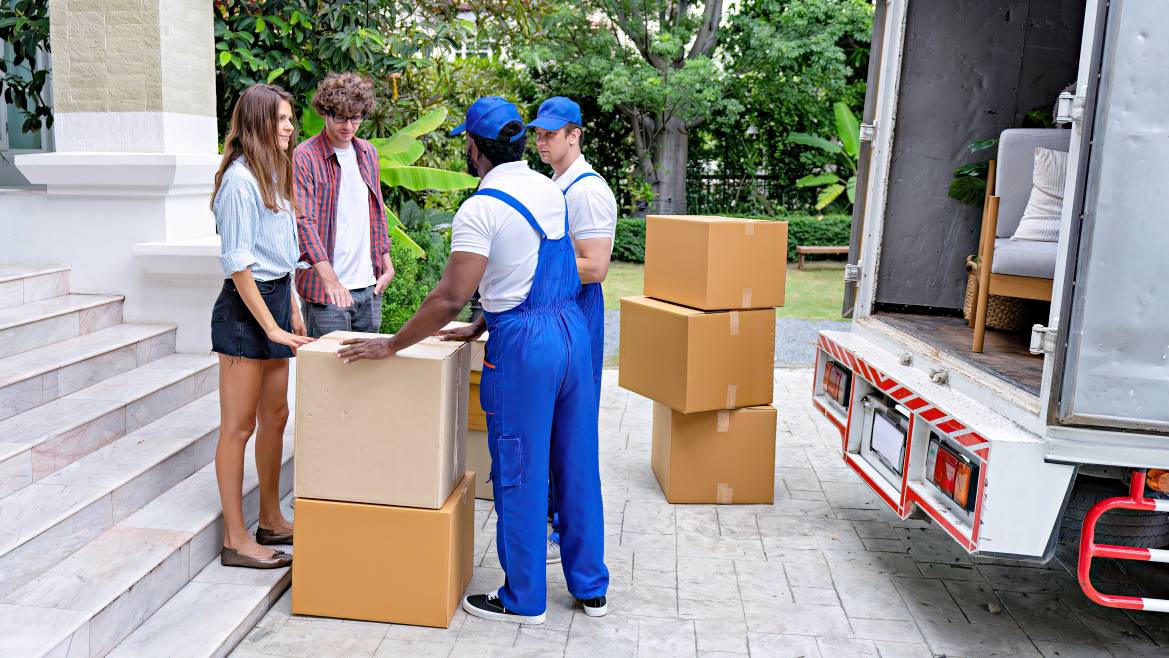
How much do removalists cost?
Read more
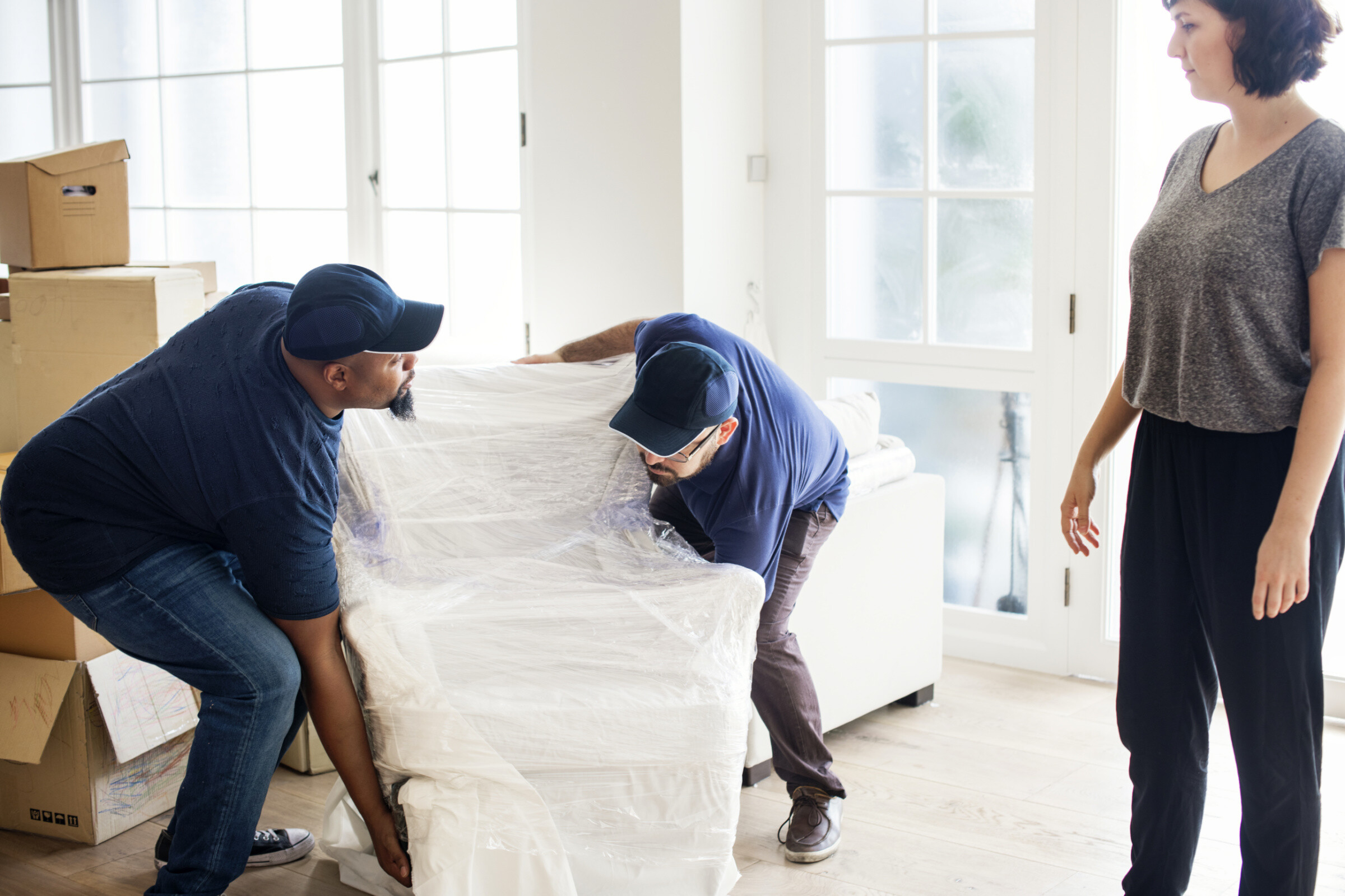
How much does it cost to move house?
Read more

How much does piano moving cost?
Read more
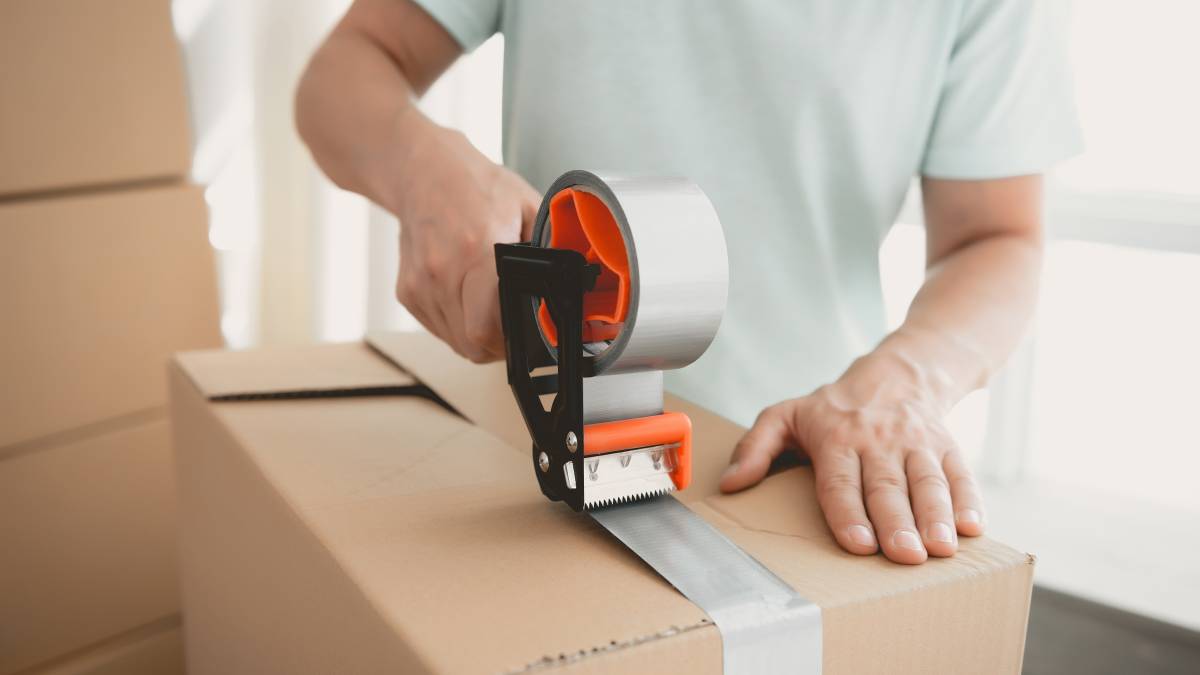
How much do packers cost?
Read more
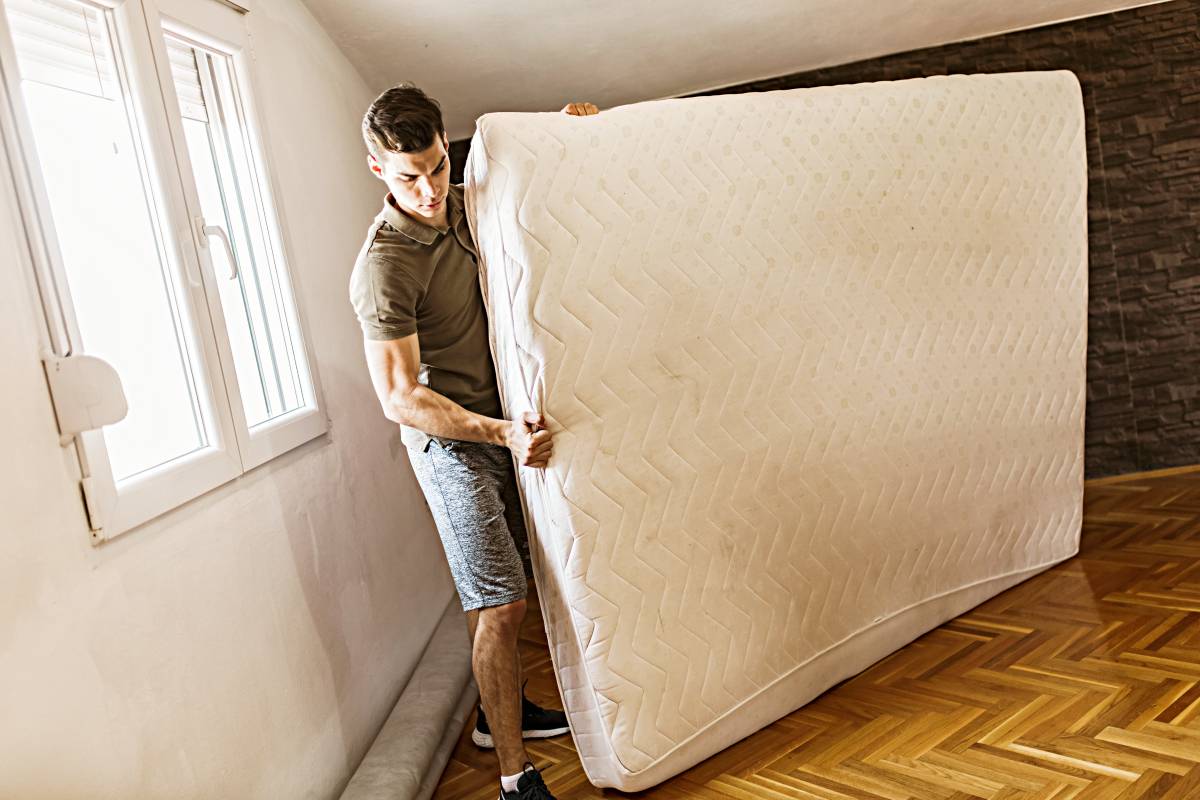
How much does mattress removal cost?
Read more
Let's do this!
It's free and takes only a minute.
